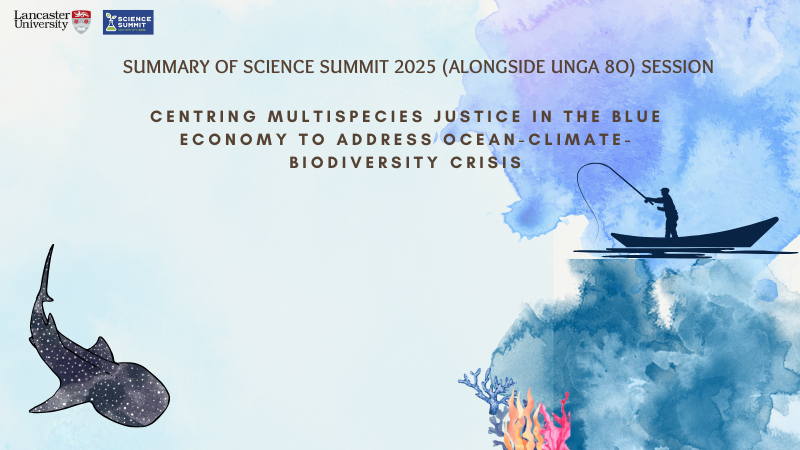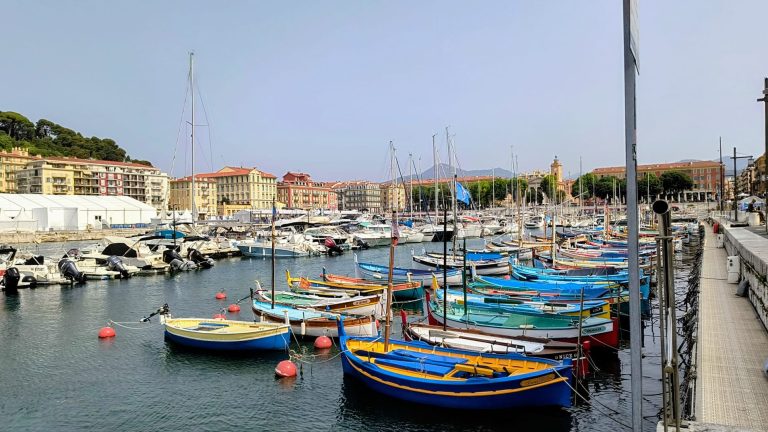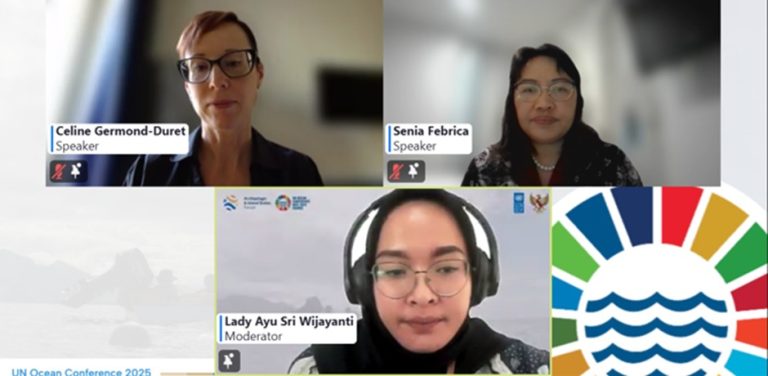
Background
Despite blue economy projects around the world aiming for the sustainable use of marine resources, there are growing criticisms regarding potential injustices towards human and non-human populations (Germond-Duret, Heidkamp and Morrissey, 2022; Dulvy et al; 2021). Using ‘multispecies blue justice’ lenses, this session explored how to better integrate nature, climate and biodiversity in the blue development agenda. Taking the ‘ocean decolonisation’ approach this session expanded the concept of justice to include both ocean dependent communities and non-human populations. It offered academic insights, practical guidance and best to address a major blind spot in ocean justice study that often omits non-human-others (Tschakert, 2022), and conservation practices that often overlook ocean dependent communities. In a context of “blue acceleration” (Jouffray et al, 2020), the need for an approach that provides ethical and legal protection to ocean populations (human and non-human) has never been so pressing.
Key issues discussed
- Lack of consideration for “justice” in the dominant discourses on development and the blue economy.
- Local to global dimension of multispecies justice.
- Contributions of seafood businesses to multispecies justice.
- Impacts of varied and relevant blue economy activities on marine mammals.
- Injustices faced by coastal communities in Mexico due to growing tourism, port expansion, and narcotrafficking.
- Capacity building and advocacy programmes focusing on young people in the context of blue economy and ocean-climate actions.
- Integration of underwater acoustics research, soundscape analysis, and music to support the conservation of Posidonia oceanic— a threatened seagrass in the Mediterranean.
Key recommendations for action
- Mainstream the consideration for the social dimension of the blue economy.
- Deconstruct dominant discourses that influence political agenda and how we view the ocean and the blue economy.
- Advance multispecies justice that provides us a way to rethink justice differently by integrating the specific needs of coastal communities and protection of marine environment.
- Ensure that multispecies justice is considered across all levels of ocean governance, starting at the local level with the most marginalised communities.
- Promote a stewardship commitment by businesses to create possibilities for recognising responsibilities to protect the marine environment and communities who depend on it.
- Advance the principles of ‘market for responsibility’ that are equipped with stewardship standards of behaviour and information provision, data on the impacts of corporations, formal corporate governance requirements, voluntary landscape for collective stewardship behaviours and impacts, and any ranking/rating of performance regarding stewardship.
- Take action to mitigate impacts of blue economy activities (e.g. incidental mortality in fishing gear, bycatch) on marine mammals as they are unsustainable for some populations of some species.
- Respectfully include traditional knowledge and their knowledge holders in the conservation and sustainable use of the ocean resources and spaces.
- Ensure the protection of coastal communities in Mexico that are facing threats of displacement, land and ocean grabbing, and criminalisation due to rapid blue economy development, narcotrafficking, and climate crisis.
- Support the next generation of small-scale fishers in Mexico that are on a steep decline because of the impacts of tourism, port expansion, narcotrafficking, climate crisis and biodiversity loss – threatening the economic, social, and cultural longevity of the sector.
- Empower youth to access marine science and mainstream multispecies justice in ocean governance.
- Embark on innovative solutions to enable young people to build capacity, advocate for peace and sustainability, support sustainable shipping and coastal community resilience on a global scale.
- Cultivate creativity, art, and music to address today’s ocean–climate–biodiversity crisis. Music, as a universal language, can cross boundaries and can reach audiences beyond science. It awakens care, inspires responsibility, and turns information into shared meaning.
- Recognise that sustainability requires both science and emotional re-connection and cultural transformation — where art and music can serve as catalysts in translating scientific knowledge into human experience.
Panel members
- Dr Senia Febrica, Research Associate, School of Global Affairs, Lancaster University, UK; Founder, Segara Nusa Nawasena, Indonesia.
- Dr Celine Germond-Duret, Lecturer in Environmental Politics and Policy, School of Global Affairs, Lancaster University, UK.
- Professor Philippe Cullet, Professor of International and Environmental Law, SOAS University of London, UK.
- Professor Jan Bebbington, Director, the Pentland Centre for Sustainability in Business, Lancaster University, UK.
- Professor Philip Hammond, Scottish Oceans Institute, University of St Andrews, UK.
- Roberto Cerda, Director, Restore Coral, Mexico.
- Emilie McGlone, Director, Peace Boat US, US.
- Coco Francavilla, Founder, Music For The Sea, Spain.


